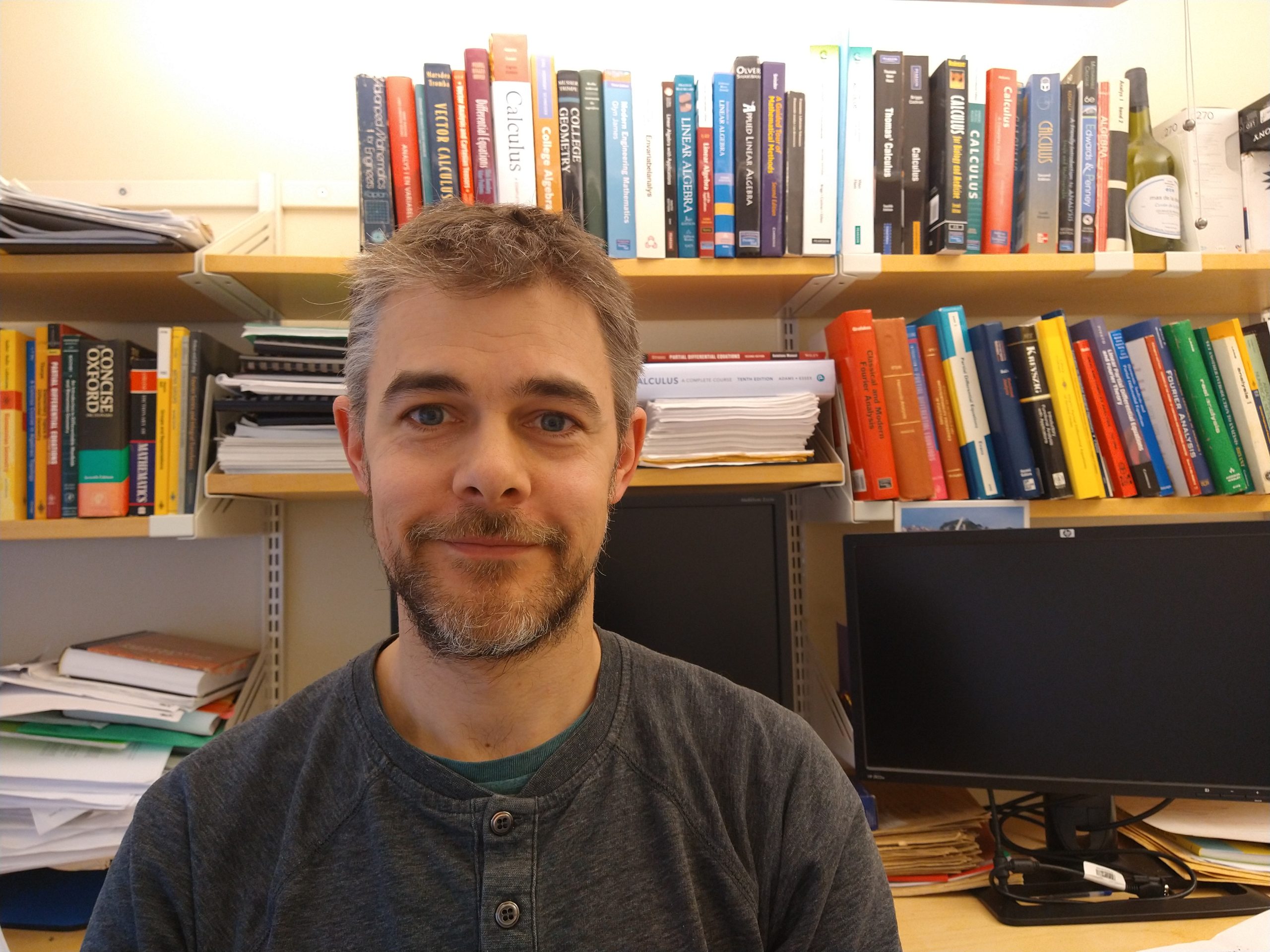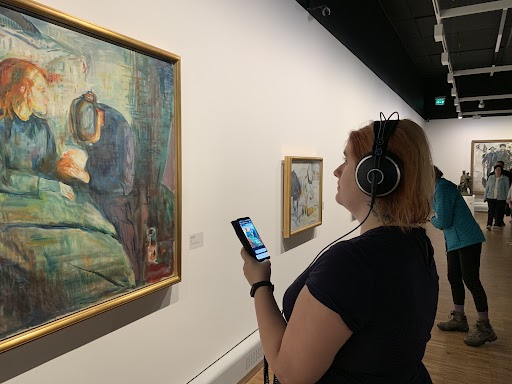7 out of 10 academics in Sweden are members of a union. Here's why you should join one, too
As the repercussions of the Swedish government's controversial Aliens Act rumble on, international doctoral candidates and researchers in Sweden should make themselves aware of the benefits of the Swedish Association of University Teachers and Researchers (SULF) union. Here's why.

Many doctoral candidates and researchers in Sweden from overseas have not had a great last couple of years. First there was the pandemic that hugely disrupted their education and their work.
And then there’s the Swedish government’s Aliens Act, which could, almost unintentionally, end up expelling thousands of international PhD graduates and researchers from the country.
There’s been some recent good news, however, with a new package of labour immigration laws containing some laws which could make it easier for certain immigrants to apply for a work permit in the country.
A new kind of residence permit, also referred to as a “talent visa”, will be introduced for certain highly-qualified, highly-educated individuals, which will certainly benefit some international academics in Sweden.
These changes have come following a long and painstaking campaign by the SULF union, which has been campaigning for the rights of its 22,000 international academic members in Sweden.
International academic? Find out more about the Swedish union just for you
Many of those international academics joined SULF to avail themselves of the union’s legal advice and various protections, but there are additional benefits to SULF membership that many members may not be aware of.
Paulina Rajkowska has been studying in Sweden for 10 years, first as a Master’s and now for her PhD in Human-Computer Interaction at Uppsala University. She joined SULF four years ago.
“Basically, all my friends were saying ‘you must join the union’, and ‘you must join so you can get your a-kassa unemployment benefits sorted out’ and that was it. That was the only reason I was given. I had no idea there was anything else to it.”
“The variety of benefits you get is wonderful, of course.”
As well as the income insurance, you’re entitled to free employment advice, as well as free legal insurance, and discounts off various insurances, including house insurance aimed especially at guest researchers.
But Paulina quickly learnt that was so much more to joining a union such as SULF.
“Trade unions are marginalised in Poland where I’m from. The unions have no say in employment or working conditions. So if you join a union, it’s more of an idealistic statement – like donating to a charity. It has no application to real life – none. But in Sweden unions are part of the fabric of society. They are an important part of the 'Swedish Model'.”
The ‘Swedish Model’ is the catch-all term that describes several typically Swedish systems, including fundamental labour laws designed to protect workers’ rights.
 David Rule, a lecturer in mathematics at Linköping University, and member of SULF
David Rule, a lecturer in mathematics at Linköping University, and member of SULF
Based on the division of responsibilities between the state and trade unions, the two work in tandem to guarantee good working conditions and fair treatment of everyone working in Sweden.
As a result, 70 per cent of the Swedish workforce belongs to a union, compared to 10.3 per cent of American workers and 23.7 per cent of British workers.
The collective bargaining agreements (kollektivavtal) which form the basis of 'the Swedish Model' of the working conditions in each sector are determined by the trade unions and the employer organisations. The government rarely interferes, though it may set the boundaries through labour laws.
“This was one of the most striking things about moving to Sweden,” says David Rule, a lecturer in mathematics at Linköping University, and a member of the board for the university’s SULF branch.
“That’s why there is no minimum wage in Sweden – there is no need for one because unions work with the employers to ensure fair pay. It is absolutely nothing like the UK.”
When David first arrived in Sweden in 2012 he, like Paulina, was encouraged to join SULF.
“I joined the union and then I was asked if I wanted to join a committee and I did because I was interested and then I soon realised that I could do good work. As a mathematician, I focus on my work and often go into my own little world, and for a while that’s all that really matters. But actually, there is a world outside of that. And there are important questions in that world.”
“How do we work together? What sort of university do we want? How can we make the university better? This is all work we can do in SULF. This is work that matters.”
David also became more aware of how important SULF’s work was with international doctoral candidates and researchers.
“There’s the question of just getting to know the system as an outsider. You’re not from Sweden, so you don’t know how pay negotiations work. You don’t know what rights you have. You don’t know how you can move on to the next stage of your career in Sweden. There’s a lot in common with other countries and academics do move around a lot, but nevertheless, everything’s very much affected by the local rules. So in that sense the union is set up to help people who are new to the country, so that they know what they need to know.”
 Paulina Rajkowska is studying for her PhD in Human-Computer Interaction at Uppsala University
Paulina Rajkowska is studying for her PhD in Human-Computer Interaction at Uppsala University
For Paulina the fact the union was a part of the national dialogue was an eye-opener.
“Soon after I joined SULF I was asked what I would like to change in the world. I was shocked that anyone was interested in my thoughts about this. And then I thought it would be nice if researcher employment was a bit more secure, and that we don’t have to constantly burn out. That would be amazing, right? If half of our department wasn’t on sick leave every half a year, that would be great.”
Paulina was also given the tools by the union to start work on these huge issues. “I was a little cynical that we could have any impact. But then the union said, ‘Let’s share some ideas, let’s write some articles, let’s reach out to people we want to support and try to make a difference’, and I think that feeling of being able to change things is everything to me. Just knowing that, if I put in this work, it’s not time wasted. It actually does reach someone and it does change something for someone. And very often that blows my mind.”
Sweden is very different to where Paulina studied before. “In Poland, you do not speak to your teacher until you are spoken to, you don’t ask questions, you show up for the exams, and then basically chase after the teachers and be nice to them, so they give you a good grade.”
David underlines how SULF works with universities to give students more input into the education process. “We’ve talked recently about how courses should be evaluated, and how students have the right to comment on courses and have some sort of influence on lectures. It’s important that students are listened to.”
Being in the union isn’t just about committees and work, however.
“It’s very sociable,” says Paulina. “Us academics are used to ploughing our own furrow, only meeting up with other people in our field. But being involved in the union means meeting people from all sorts of other disciplines. It’s so collaborative and fun and inspiring. And then there’s this idea that my work matters, and I can contribute to something bigger than myself. I assumed being in the union would be one thing but then once you get into it, it turns out it’s this whole new world.
“And it’s not what you thought it would be. It’s just so much more.”
This content was paid for by an advertiser and produced by The Local's Creative Studio.

Join the conversation in our comments section below. Share your own views and experience and if you have a question or suggestion for our journalists then email us at [email protected].
Please keep comments civil, constructive and on topic – and make sure to read our terms of use before getting involved.
Please log in here to leave a comment.